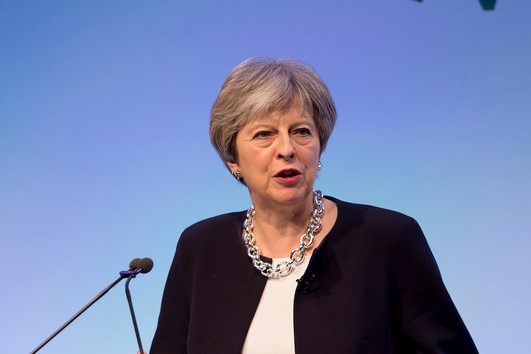British Prime Minister Theresa May’s grip on power has never looked weaker. Like the time last October when she was delivering a speech meant to restore her authority over a ruling party losing popularity in the polls and struggling with Brexit. It was a disaster.
A prankster handed her a fake notice of dismissal. She struggled with a persistent cough. Even the slogan behind her, “BUILDING A COUNTRY THAT WORKS FOR EVERYONE,” failed when several letters fell to the floor, prompting giggles from the audience.
As reported by the Reuters news agency, when May’s speech writer at the time, Chris Wilkins, entered the room where the PM was sitting with her husband and a handful of aides, the atmosphere was strained, he said.
But May shrugged. “She said, ‘There’s nothing I could do about it. It wasn’t my fault. It’s one of those things,” Wilkins recalled.
It was typically unemotional. According to present and former aides and one former minister, May is someone who meets criticism, catastrophe and success with the same even response – take each day as it comes and get back to work.
Her critics, however, have a different view. Both inside and outside her Conservative Party, they describe May as remote and lacking vision. Some call her a robot or “Maybot”. In their view, she is stumbling through the Brexit negotiations with Brussels.
According to Reuters, her latest attempt to agree a Brexit plan has been undermined with the recent resignations David Davis, the minister in charge of Brexit negotiations, and Foreign Secretary Boris Johnson, both strongly pro-Brexit. They quit within hours of each other.
The fact is that the UK has less than nine months to organise its place in the world outside the EU. On March 29 next year, Britain is due to leave the bloc it joined more than 40 years ago. It won’t be easy considering that the country’s economy and most of its laws on trade, workers’ rights are linked to EU.
May, who declined to be interviewed by Reuters for this article, stood firm in the wake of the ministerial resignations. She said in parliament she would continue with her plans, describing them as the “right Brexit”.
As for EU officials, many concede that May is always on top of the detail in talks. But she and her government can often show a lack of understanding of how the bloc works.

